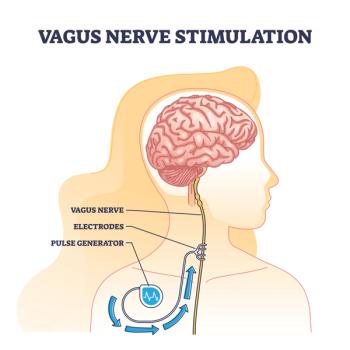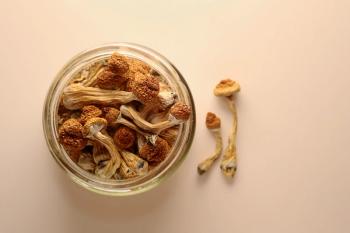
Intra-Cellular Therapies Seeks FDA Approval for Caplyta as Additional Treatment for Depression
The drug has shown strong results in phase 3 clinical trials, which are the basis for the new application to the FDA.
Intra-Cellular Therapies, Inc., a biopharmaceutical company focused on central nervous system disorders, has submitted a supplemental New Drug Application to the FDA seeking approval for Caplyta (lumateperone) as an additional treatment for Major Depressive Disorder (MDD) in adults.
Caplyta, an oral atypical antipsychotic taken once daily at a 42 mg dose, is currently approved for treating schizophrenia and depressive episodes associated with bipolar I or II disorder, either as on its own or in combination with lithium or valproate, according to a
While its exact operations remains unknown, Caplyta is thought to be effective because it affects certain receptors in the brain, specifically the serotonin 5-HT2A and dopamine D2 receptors.
MDD is one of the most pressing challenges in mental health treatment. The disorder affects 21 million adults annually in the United States and is a leading cause of disability worldwide, per the release.
Symptoms include continued sadness, hopelessness, irritability, cognitive impairments, disturbed sleep and suicidal thoughts, all of which impact daily functioning and quality of life.
It was found that two-thirds of those with MDD fail to achieve remission with first-line treatments, underscoring the urgent need for more effective therapeutic options.
This pressing need is what makes Caplyta's potential impact so crucial.
The drug has shown strong results in phase 3 double-blind and placebo-controlled clinical trials, which are the basis for the new application to the FDA.
The patients in the studies had MDD and didn’t respond well to other antidepressants. When Caplyta was added to treatment, it significantly improved patients' depression symptoms, as measured by a scale called MADRS, with strong results in both studies.
Common side effects such as dizziness, dry mouth, sleepiness, nausea and tiredness happened at similar rates to a placebo, however, the drug caused very few changes in metabolism or weight, and it had low rates of movement problems, which makes it safer to use for a long time compared with many other antipsychotic drugs.
According to the Cleveland Clinic, common side effects of most antidepressants include upset stomach, diarrhea, headache, drowsiness, and sexual dysfunction, with weight gain possible.
Although the price is $55.39 per pill or $1,661.75 for a bottle, most patients won’t have to pay the full amount.
Caplyta's growing market presence highlights its potential to transform mental health treatment.
In
“MDD is a highly prevalent condition with a significant need for efficacious, safe, and well-tolerated medicines, as more than half of patients do not adequately respond to an antidepressant alone,” Suresh Durgam, M.D., executive vice president and chief medical officer of Intra-Cellular Therapies, said in a news release.
Newsletter
Get the latest industry news, event updates, and more from Managed healthcare Executive.

























